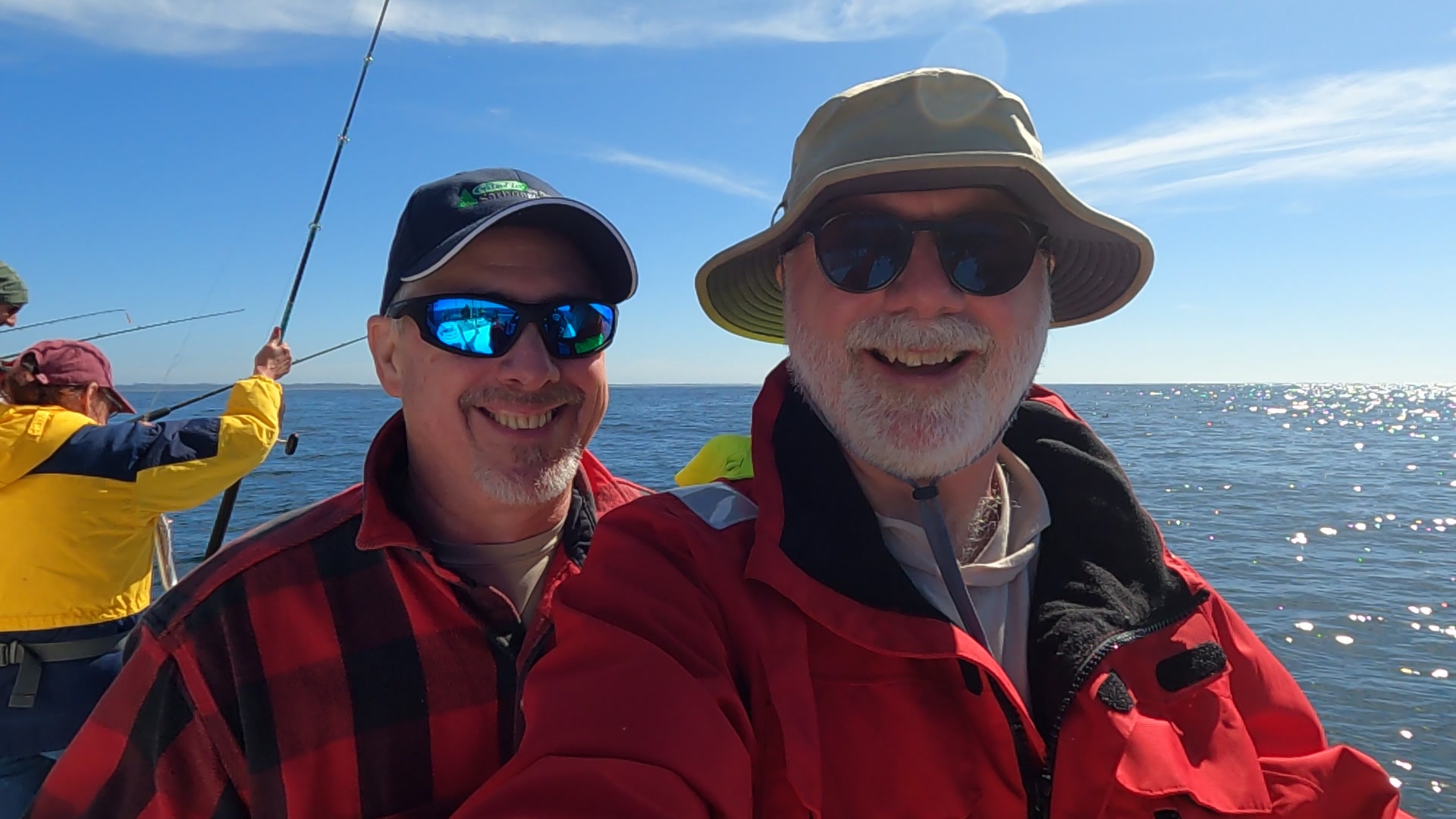They go to a great deal of trouble to protect rockfish in Puget Sound, where they are now completely illegal to catch. It’s a totally different story in the Pacific Ocean. There they are as common as sand dabs, and almost as easy to catch. You are allowed generous limits of seven per person per day, plus two lingcod of any size.
Dave and I took a bottom fishing charter out of Westport on Saturday. His company paid for the trip (plus two nights in an AirBNB) to thank him for his 45 years (!) of service. Unbelievably, they paid my way as well so that Dave would have somebody to go with. We came into town Friday afternoon, and got there before the charter company’s office closed. They told us the restaurant across the street could make us sack lunches for the boat, to be ready at 5:00 a.m., so we walked over there and ordered some. Everyone we met was friendly and helpful.
The AirBNB was super nice, and I slept a solid seven hours before the 4:00 a.m. alarm. We picked up our sack lunches, had a light breakfast and coffee, and met the F/V Gold Rush at 5:45. The boat already had fishing poles inserted in rod holders all down both sides, which stuck way out over the dock. At 6:00 sharp we pulled away and we joined a mob of other boats waiting in the dark at a nearby dock with a big sign that said “LIve Bait”. When it came our turn, we nosed in without even properly docking, and a guy on the pier extended a long net full of anchovies out to our boat. We took a couple of these onboard and pulled away, accidentally brushing some of our fishing poles against the pilings as we left.




Outside the Grays Harbor bar, the ocean felt quite rough, with four-foot seas that really jostled us around. We were told that it was relatively smooth compared to the rest of the week. The day before, the Coast Guard had closed the bar because of nine-foot seas, nine seconds apart. All the charters that day had to be canceled. After the sun rose, the day got progressively warmer and calmer, until it was almost smooth and we eventually all doffed our coats. We had definitely gotten lucky with the weather.
The Gold Rush traveled north for about 90 minutes, but never more than a mile or two offshore. We always had land in sight. Finally, it was time to fish. The two deckhands, named Peaches and Aardvark, were very efficient. The moment the captain stopped the boat everything was already ready for us; we just had to pick up our already-baited rods and drop our lines. It was very much like fishing for sand dabs in Puget Sound, and at similar depths of maybe 60 to 100 feet. Each rod had a 10-ounce weight near the end, to which a leader with a double hook rig and a live anchovy were attached. We repeatedly bounced off the bottom, immediately cranked up seven turns, then dropped again and repeat. We often got snagged on the bottom and lost our hooks and bait. The deckhands were super fast at tying new hooks on each time; it only took them a minute or two before we were back fishing again. Whenever we got a fish, we had to call “Fish Up” and hold it just underwater. The deckhands pulled each fish aboard themselves without nets, so that they could count it and make sure it was legal. We all pooled our catch. Every rockfish went into a common barrel no matter who caught it, and all the lingcod went into a separate locker. Everything else, like the big sculpin I caught, went back overboard. At the end of the trip, they simply divided our common catch amongst the passengers.
The 13 paying passengers had caught our collective limit by 1 p.m. I honestly don’t know how many I caught, but it was definitely more than the seven rockfish required to pull my weight. Dave and I each only caught one small lingcod though; in fact we were disappointed by how small everybody’s were. We learned later that the big lingcod are caught in the spring. The most successful fisher was a nine-year old boy named Henry, who caught enough lingcod to make up for those of us who didn’t catch our limits. Peaches and Aardvark filleted 117 fish during the hour-long trip back to port. That’s about one minute per fish! They were amazing to watch.
Back at the AirBNB, I put my vacuum sealer to good use. After dinner, we spent the evening packaging up our catch. My portable electric freezer kept it all frozen for the three-hour drive home. I’ve now got enough rockfish and lingcod for my wife and I to eat once a week for over two months. I kept two rockfish fillets unfrozen in a separate cooler, so that I could cook them up for dinner. I seared both sides in a pan in olive oil for a minute or so, then coated them in a breading of bread crumbs, paprika, minced garlic, lemon, and parmesan. Then I baked them at 425 degrees for seven minutes. They came out super flaky and tender. Yum!
Discover more from Mini Montauk Adventures
Subscribe to get the latest posts sent to your email.


